Using AI for eCommerce 15 Tools You Need to Try
Posted on 9/25/2023
Reviewed by Arnt Eriksen updated at 10/14/2023
Introduction

We've all seen countless lists of how you can use AI for eCommerce businesses. Unfortunately, most of them are either paid lists and/or contain tools that could barely be considered artificial intelligence and are not that cool.
In this article, we want to go a different route. We want to share with you the tools that we believe are truly amazing. Some of them can change the way you operate your eCommerce business.
Benefits of using AI tools for eCommerce Businesses.
The use of artificial intelligence (AI) tools in the eCommerce industry is on the rise. These tools can help your online store become more efficient and profitable. Here's how:
Personalized Shopping Experiences Based on Customer Preferences
Machine learning can make shopping more personalized. Certain artificial intelligence tools can analyze customer data, like what they are browsing and purchasing in online stores, then use natural language processing to provide personalized suggestions.
They then suggest products that align with the customers' preferences, enhancing their online shopping experience. This can lead to a more efficient sales process and boost customer loyalty.
Delivering Engaging Content Effectively
AI can assist in creating compelling content for your eCommerce business.
Using natural language processing tools speeds up the production of content such as articles, messages, newsletters, guest posts, or blog posts, freeing up time to focus on other aspects of your business.
It can help you to create informative, convincing and quick to read product descriptions. Product descriptions are important because they help you to close the sale.
Adopting Optimal Pricing Policies
Machine learning models within artificial intelligence tools can help set prices. They analyze factors like demand, competition, customer data, and market conditions to suggest prices that can boost sales.
This allows your online store to remain competitive and respond to market fluctuations.
Fraud Management
Artificial intelligence can help detect and prevent fraud. It monitors customer behavior for any unusual patterns, helping to safeguard your business and maintain customer trust.
Visual Search
AI enables visual search in online stores. Customers can upload an image, and the AI matches it with similar products in your catalog, making product discovery faster and more convenient.
Chatbots and Virtual Assistants
AI-powered chatbots and virtual assistants can handle customer interactions on eCommerce websites. They can answer queries, provide product information, track orders, and suggest products based on customer data.
This enhances the speed and efficiency of customer service and improves the online shopping experience.
Forecasting Future Demands
AI can help predict future popular products. It uses machine learning to analyze past price trends and purchasing patterns to help with inventory management and delivery schedules.
This can save money and enable major eCommerce businesses to meet customer expectations.
Inventory Management
Artificial intelligence can help you organize your inventory and keep track of your stock. This can help you avoid overstocking or understocking.
Some inventory management AIs can even automate restocking.
Creating Landing pages
Some AI tools can help create landing pages for your website. While it is always a better idea to hire professionals, an AI can help speed up the creation of the first draft.
What are the best Ai tools that you should try if you run an eCommerce business?
There are a lot of AIs with great machine learning algorithms out there for online store owners to use. Here, we have gathered the most interesting ones. We won't be covering ChatGPT, as it and its various plugins and applications in the eCommerce industry deserve an article of their own.
In light of Google's latest announcement, we do not include AIs for making ad creatives, as those can soon become redundant.
1. Auto-GPT
Auto-GPT is an open-source tool that can do tasks on its own. It's based on the GPT-4 language model. You give it a big goal, and it will do the tasks needed to reach it.
You can use it online, or get the code and run it on your PC. Most of the guides you'll find online assume you already know a thing or two about coding. If you don't, like me, I suggest this video.
While Auto-GPT is free, it needs ChatGPT's API to run. You will need 20$ monthly for ChatGPT Plus, and some extra for every time you access the API. So the final price will vary depending on the scale of tasks you will give it.
While you can use it as is, its out-of-the-box functionality can be limited. To truly make the most of AutoGPT, you'd need to invest in a good developer to tailor it to your needs.
2. Synthesia

Synthesia is a tool that uses artificial intelligence to help you make professional videos. You don't even need to show your own face.
This makes it great for any online store, social media manager, marketer, or digital business that needs high-quality videos but doesn't have a big budget.
You can use Synthesia to make videos for all sorts of things. It's good for product demos, explaining things, marketing, training, and more. It's especially good for short promos and teaser videos.
Pricing plans start from $22.5 a month.
3. Data robot
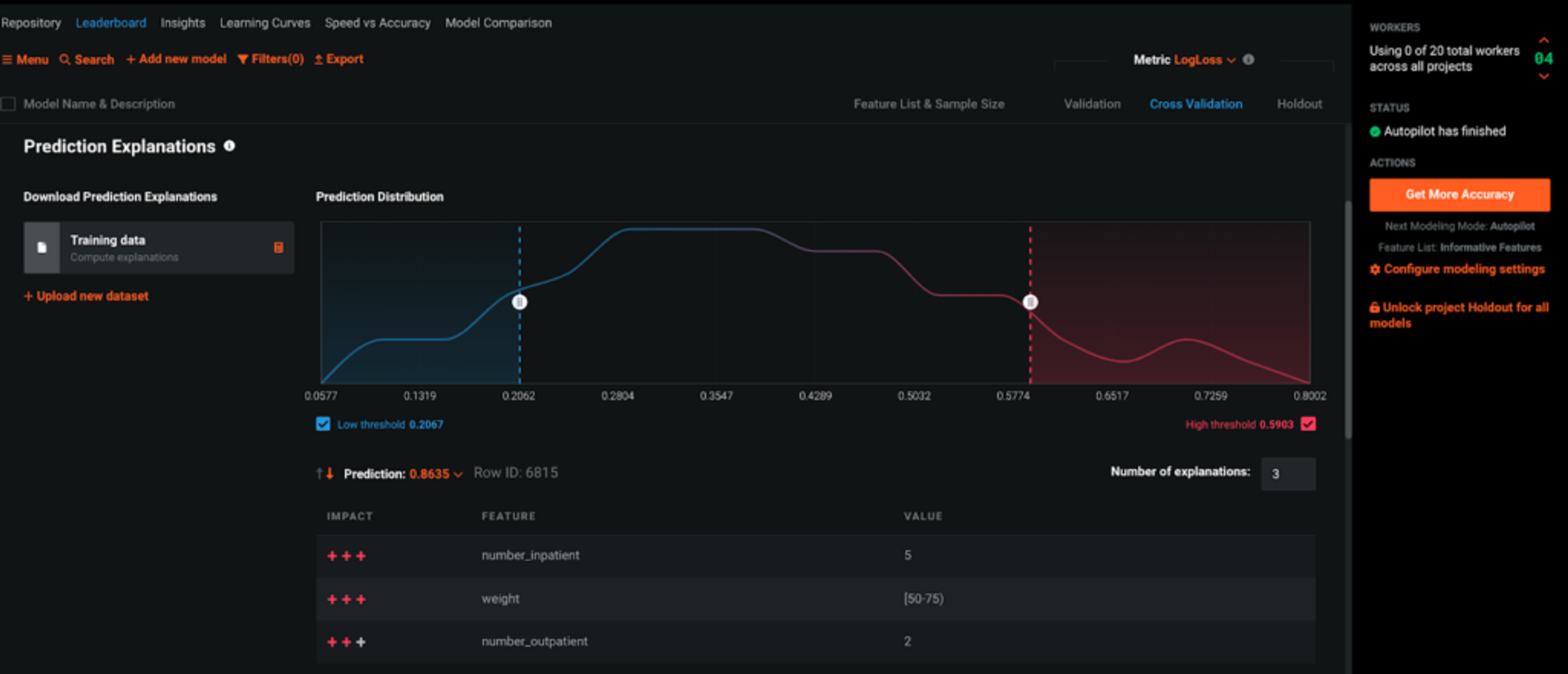
DataRobot is an AI-powered tool designed to help online businesses. It automates the process of building, deploying, and maintaining predictive models through machine learning.
This helps businesses operate more efficiently by using data to forecast events, like staffing needs based on customer buying habits.
With DataRobot, everyone in your business can access and use the same forecasts and predictions. It doesn't matter if they're working in logistics, supply chain, merchandising, marketing, or financial planning.
Plus, DataRobot lets you easily use any model, even those built outside of DataRobot, with the business applications your team uses every day.
4. Kimonix

Kimonix is a smart AI tool that helps online shops. It creates automatic product collections and sorting strategies using special rules and personal touches.
Its machine learning uses sales data, inventory stats, and customer info to make new collections.
These can increase sales, help manage stock, and make profits bigger.
Kimonix can also test different product collections to find out which ones make the most money.
You can try Kimonix for free for 14 days. If you like it, paid plans start at $69 per month for up to 1,000 orders each month.
5. Klevu

Klevu is a smart search tool for online shops. It uses artificial intelligence to analyze customer data and understand customer searches better. With Klevu, shoppers can find the products they want to buy more easily.
The tool uses information about what customers want to improve search results. This helps to sell more products and earn more money.
Klevu offers three pricing plans; €599, €499, and €399 per month. Each plan comes with different benefits.
6. AI Store Manager

The AI Store Manager is a tool designed for online businesses. It uses smart machine learning to take care of many tasks in your shop like managing products, orders, and dealing with customers. It can also improve your store's features and answer customer emails.
All kinds of online businesses can use this tool. That includes B2B, B2C, direct sellers, services based on subscriptions, and drop-shippers. The tool values your privacy and safety, adhering to rules set by GDPR and CCPA.
Right now, the AI Store Manager is in its testing phase with limited access. The cost is based on how much you use it, the number of skills you have active, and the volume of data transferred.
7. Ecomtent
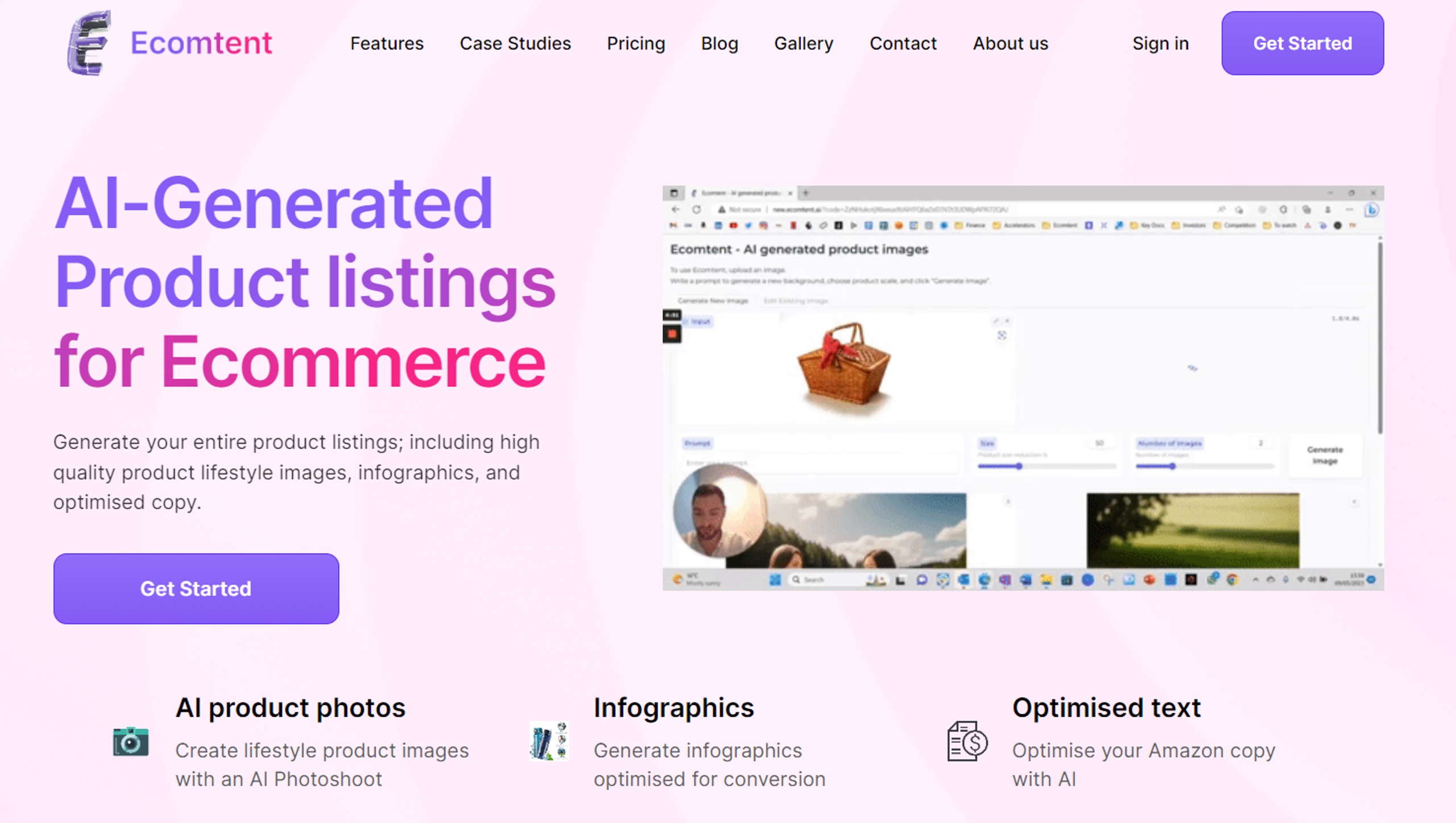
Ecomtent is an artificial intelligence tool that helps you make product listings fast. Here's why it's cool:
- It's quick: Makes pictures in no time.
- It's fun: Can put people or fun things in the pictures.
- It's varied: Can show your product in many ways.
- It's endless: You can make as many pictures as you want.
- It's good: Makes nice-looking photos.
- It's trendy: It can match new fads.
Plus, Ecomtent helps you see how well your content does. You can make unique settings for your products or make new images from old ones. You can even create pictures using your own ideas.
Ecomtent's pricing starts at 95$/month.
8. Persado
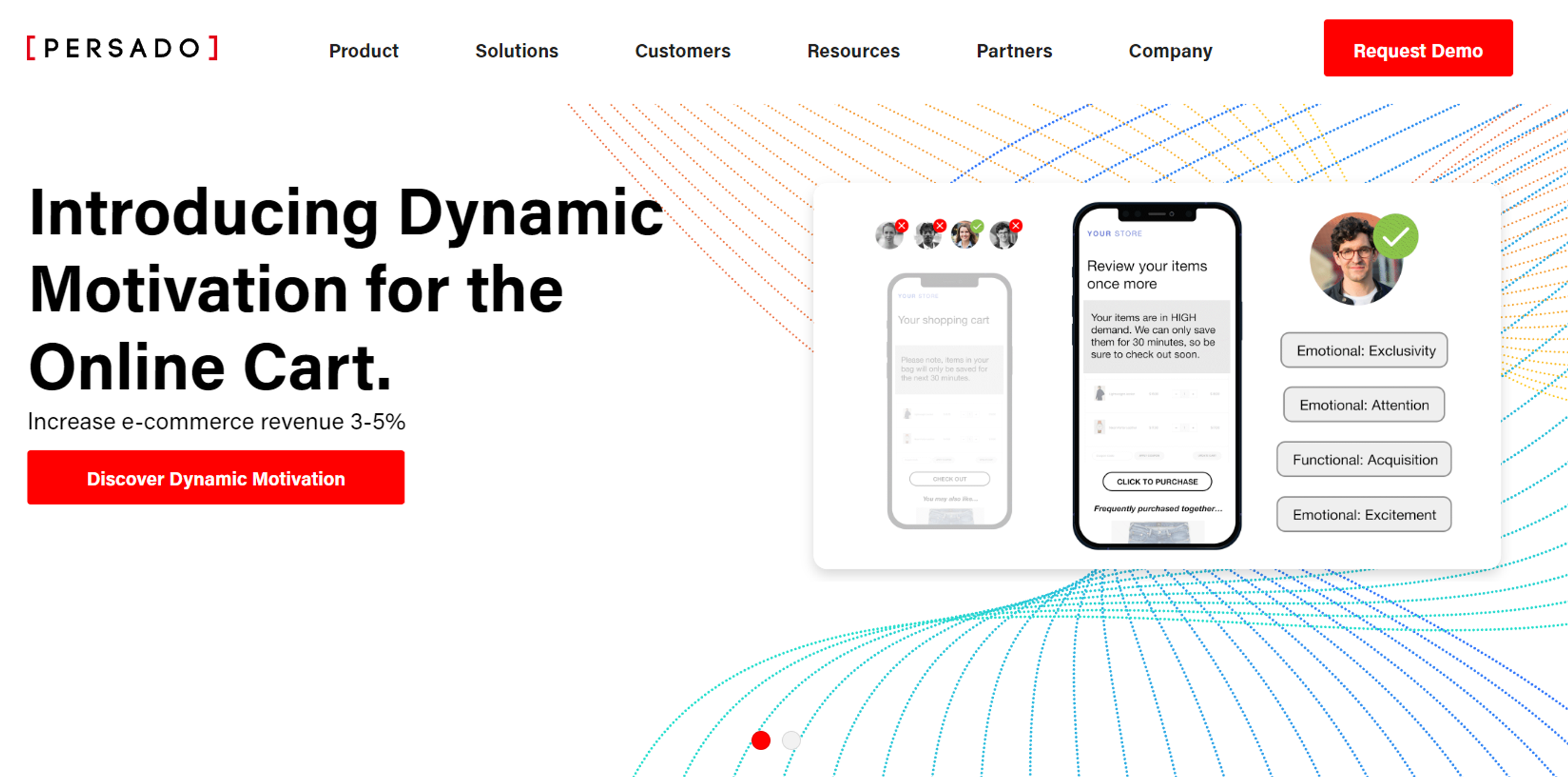
Persado is a powerful AI tool for personalization. It can create copy tailored for each specific customer, helping you boost sales.
It uses a large knowledge base, advanced AI, and deep learning models to craft the perfect words to motivate people to engage and take action.
9. Getanswer.ai
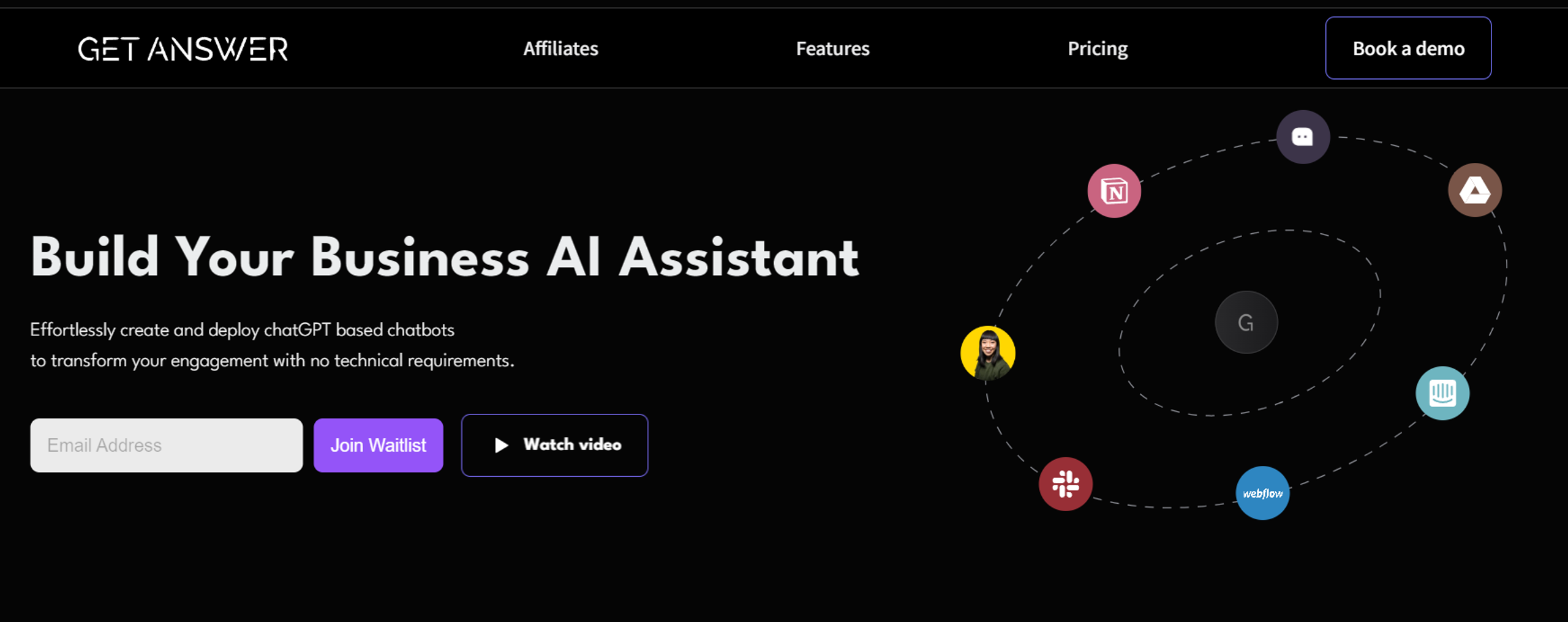
Getanswer.ai is a virtual assistant you can connect to your Shopify store to improve customer interactions. It serves as a chatbot and can handle anything from personalized product recommendations to returns.
You connect it to a knowledge base about your company, and the AI pulls the data it needs from there.
It works with 17 languages, allowing you to save a lot on customer support, especially if you are expanding globally.
Its pricing starts at 79$/month and includes 500 AI-generated messages.
10. Manifest AI
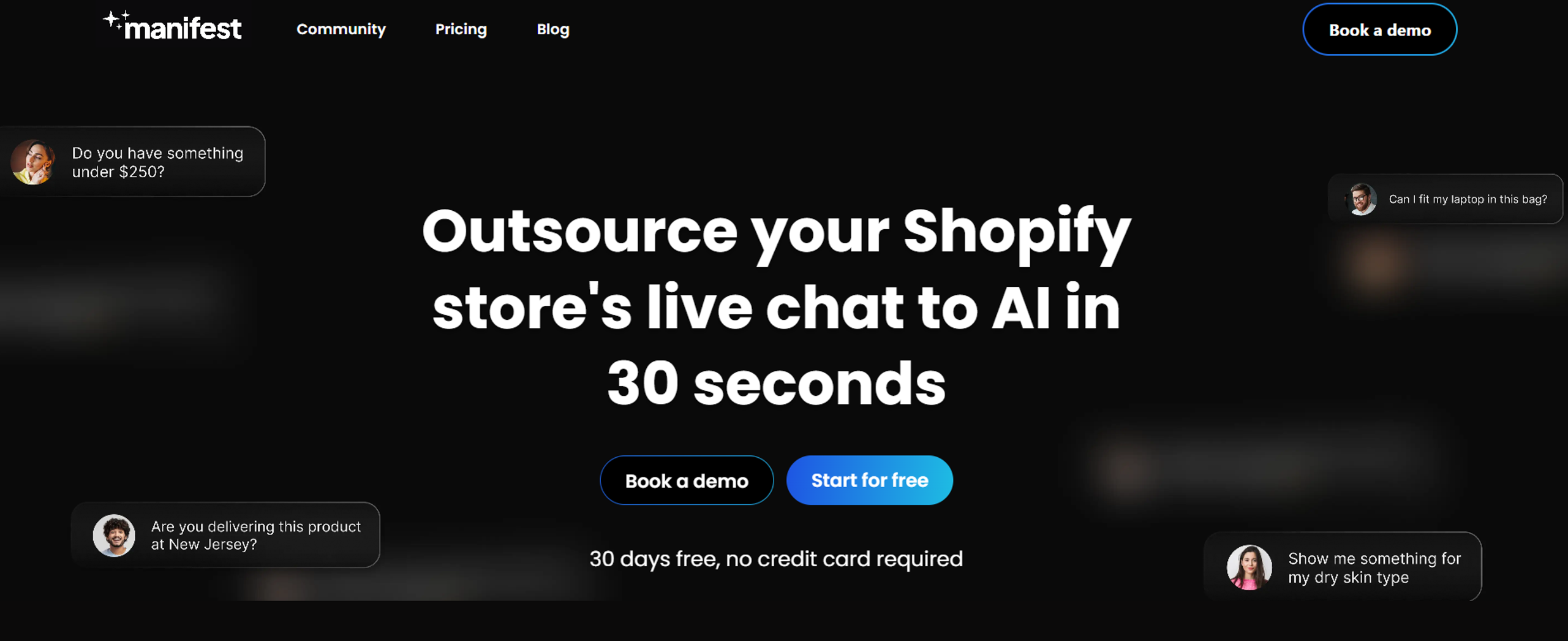
Manifest AI is another machine learning solution for handling customer interactions. It allows you to create your own custom chatbot. The main advantage is that it is easy to set up and train.
You can use it for free up to 750 messages. Paid plans start at 99$/month.
11. Play.ht

If you want to add voiceovers to your blog, or use voice-based content for any other means, Play.ht is the best option available. This text-to-speech tool has a huge library of realistic voices.
More importantly, you can clone your own voice and use it to create any audio you want in seconds. And you don't need a paid plan for that.
Its project is very easy and comfortable to use. Each paragraph is voiced separately, and you can re-generate them at will.
This makes it easy to identify and remove bugs - you won't have to start the generation from scratch if the AI mispronounces your brand (and that happens a lot, especially with abbreviations - ask us how we know)
Their free plan allows you to download up to 5000 words monthly. Their paid plans start at 39$/month.
12. Articly
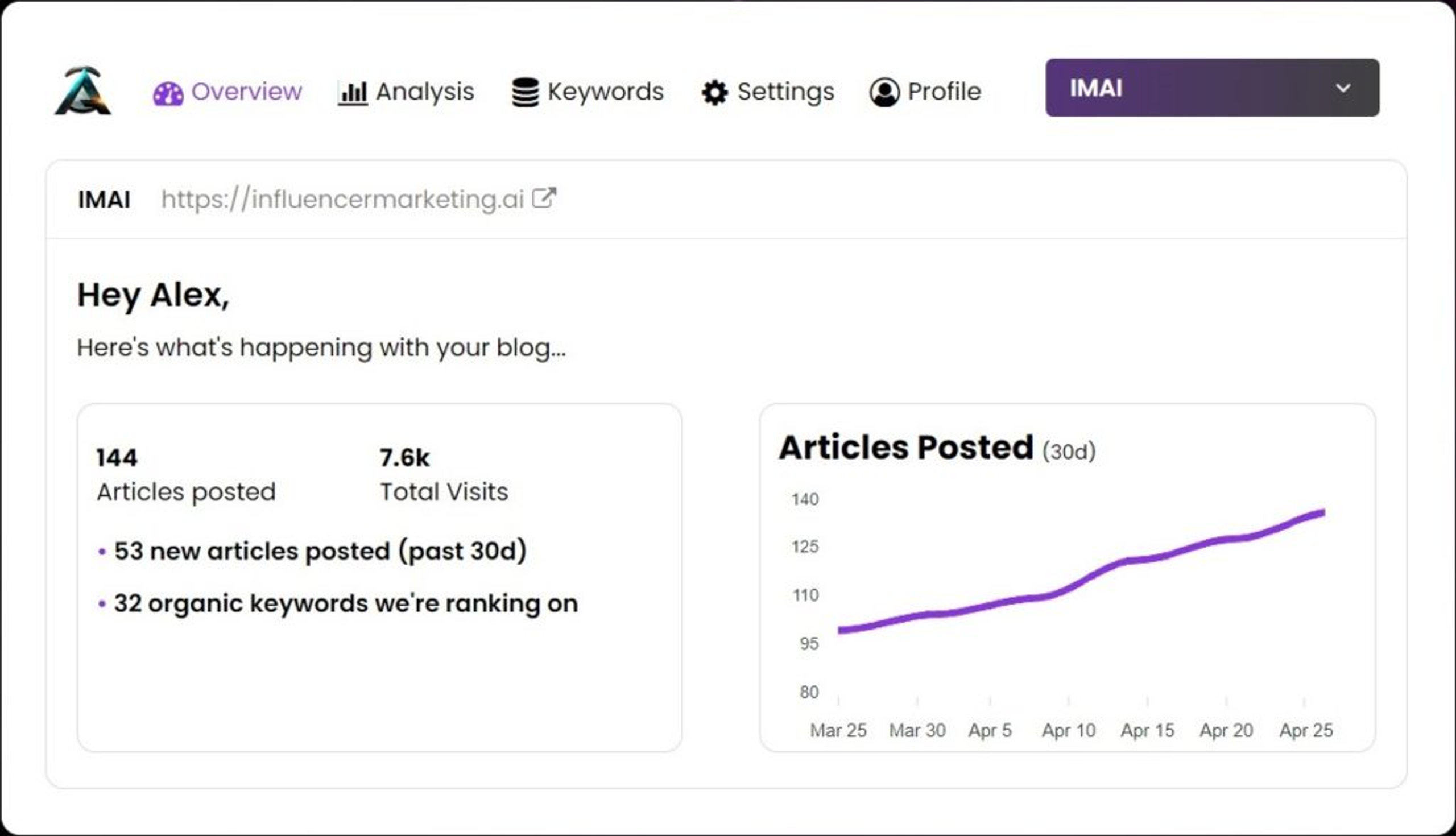
Articly is a tool that helps you with writing. It uses AI to find the best keywords to rank for. It then writes articles for them, making sure they're good for SEO and easy to read.
Articly can handle a whole WordPress blog by itself. It can do SEO research, write articles, and even publish them.
The Lite plan costs $19 a month and lets you automate 15 articles. The Startup plan costs $29 a month and lets you automate up to 500 articles a month.
13. Frase
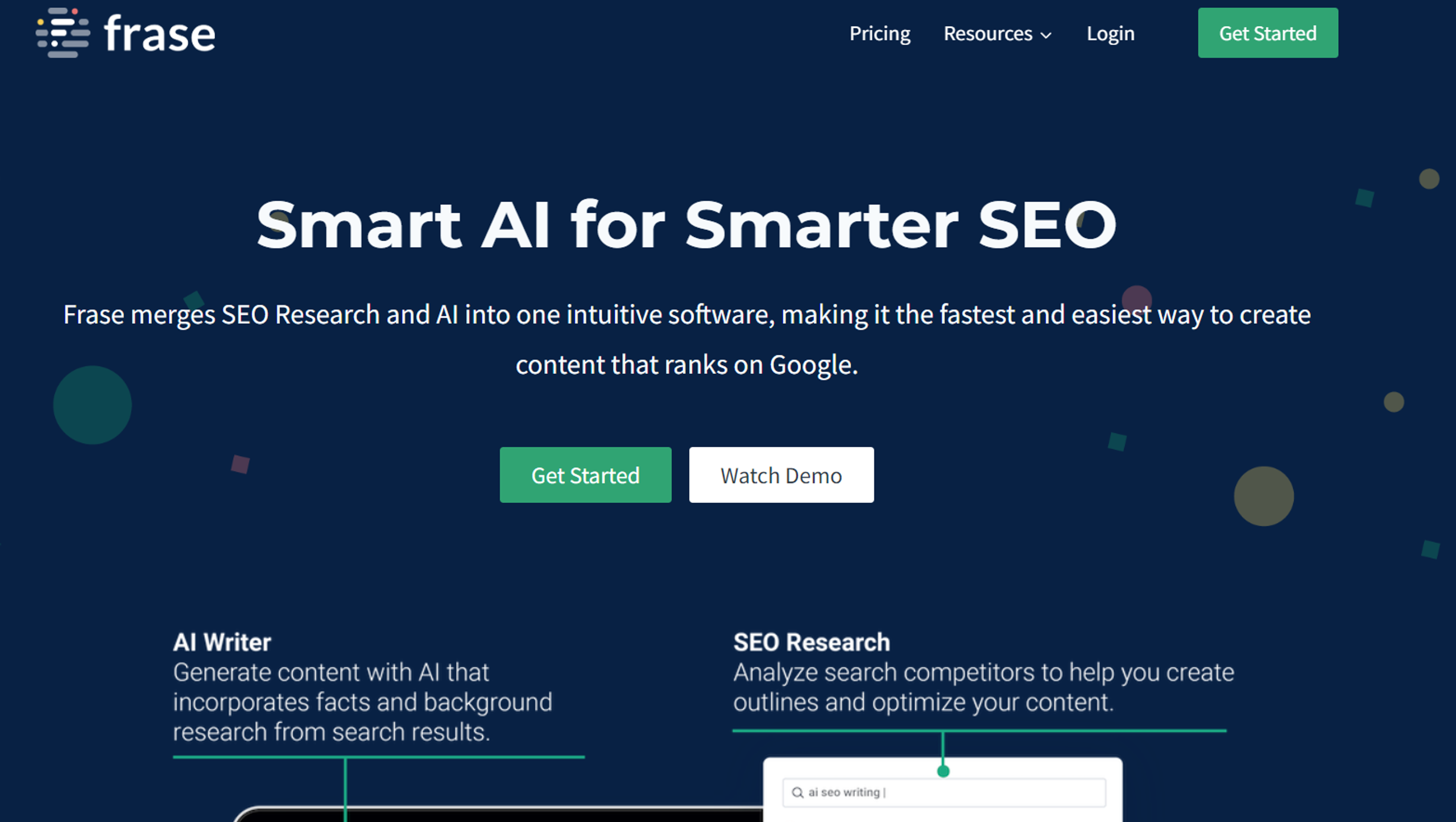
Frase is an artificial intelligence tool that helps you write. It's powered by natural language processing and makes writing easy and fast. It also helps with SEO. This means you have more time for more important tasks.
With Frase, you can create cool blog intros, headings, and FAQs. It also has features to show you how to make your content better. It can also show you what keywords and topics your competitors use. This helps you know what customers want and what your competition is doing.
Pricing
- The solo plan costs $14.99 per month or $12.66 if paid annually.
- The basic plan costs $49.99/month or $38.25 if paid annually.
- The team plan costs $114.99/month or $97.75 if paid annually.
14. Writerly.ai
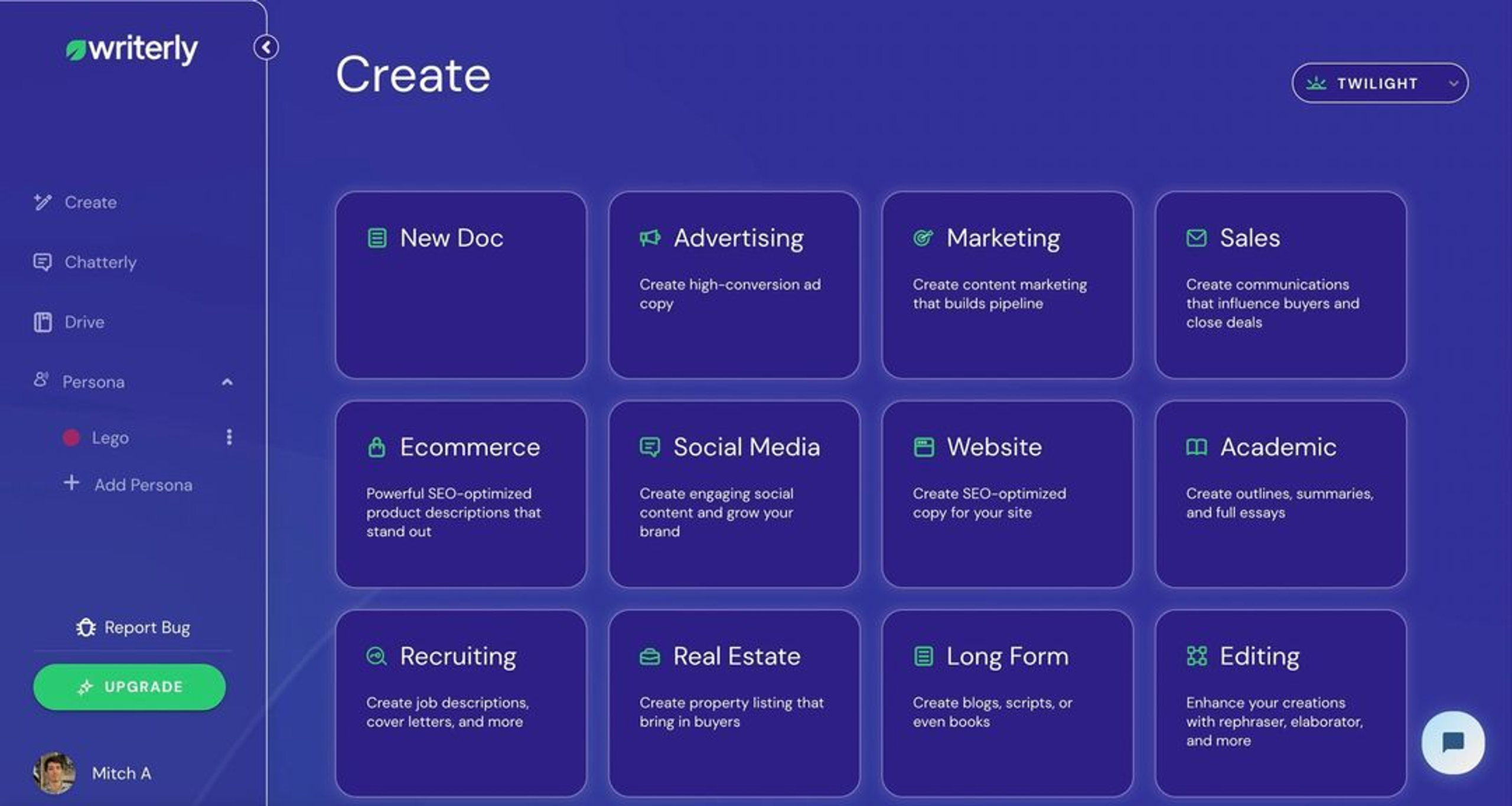
Writerly is another tool that helps you write. It uses AI to turn your ideas into detailed content. Plus, it makes sure there are no grammar mistakes.
You just need to give it some info about what you want to write. This could be a topic, keywords, phrases, or a heading. But Writerly doesn't just help with new content. It can also make your existing content better and more engaging.
Writerly takes time to get to know your brand and values. It writes content that's good for SEO and can bring more people to your store. It also comes with many ready-to-use templates for all kinds of articles.
Writerly has two price plans. The first plan is free, but you can only write 2000 words a month. The Creator plan costs $19 a month and lets you write up to 22,000 words a month.
15. Midjourney

Midjourney is a tool that helps you with creatives, website content, or even product images.
It can generate beautiful images based on your prompts. Using it is as easy as typing what you want to see. Advanced prompting can be a bit harder, but there are plenty of guides to help you with that. You can even teach ChatGPT to write the prompts for you.
The Future of AI in ECommerce
Artificial intelligence has an impressive potential to reshape the world of online shopping. It can offer personalized experiences, improve customer service, optimize how products are moved, and even bring new tech like AR, VR, and voice shopping to life.
As AI grows, businesses that use these tools will have an edge. And in the long run, their marketing efforts in the world of eCommerce will bear fruit.
FAQ
1. Why is AI becoming increasingly popular in eCommerce?
AI tools offer numerous benefits for eCommerce businesses such as personalizing shopping experiences, optimizing pricing, fraud management, inventory management, content creation, and improving customer service through chatbots.
2. How can AI help in personalizing shopping experiences?
AI tools can analyze customer data to provide personalized product suggestions, enhancing the online shopping experience.
3. How does AI benefit content creation for eCommerce?
AI tools can quickly produce content such as articles, newsletters, product descriptions, and more, allowing business owners to focus on other aspects of their operation.
4. What is the significance of AI in setting prices for products?
AI tools can analyze factors like demand, competition, and market conditions to suggest optimal prices that can boost sales.
5. Can AI help in fraud prevention?
Yes, AI can monitor customer behavior to detect unusual patterns, assisting in fraud detection and prevention.
6. What is visual search in eCommerce and how does AI enable it?
Visual search allows customers to upload an image, and the AI matches it with similar products in the store's catalog, simplifying product discovery.
7. What role do chatbots play in eCommerce?
AI-powered chatbots can handle customer interactions on eCommerce websites, answering queries, providing product information, and suggesting products based on customer data.
8. Is inventory management possible with AI?
Yes, AI can help organize inventory, keep track of stock, and some tools even automate restocking.
9. Which AI tool can help create videos without showing my face?
Synthesia is a tool that helps create professional videos using AI, without the need to show your own face.
